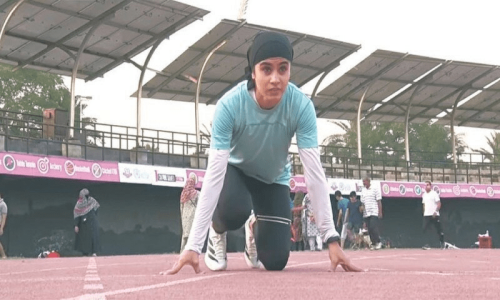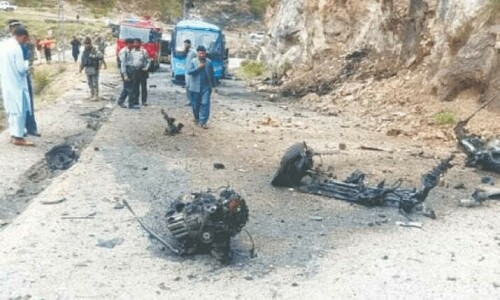
PAKISTAN no longer has a chief executive, and the most urgent issue now is to have one in place as soon as possible and reactivate the cabinet. Aside from the legal and constitutional vacuum created by a missing prime minister, this is not a country that can afford to muddle along without a set of people monitoring it constantly. Accepting the Supreme Court’s judgment, having Mr Gilani step down quickly and calling a National Assembly session for Friday were the right steps for the ruling coalition to take, paving the way for quickly putting a new government in place.
But the matter doesn’t end there. The new executive then needs to focus on whatever governance is possible over the next few months. Disturbing as it has been to watch the judiciary unseat an elected prime minister, the reaction to this development should be a sobering moment for the ruling coalition. The bad-to-worse trajectory of the country over the last four years has meant the man on the street was more than happy to see the prime minister go. Bad governance is not, of course, any justification for disqualification by the judiciary, nor was it made out to be — that is a judgment that can only be made in the people’s court. Which is all the more reason the country’s reaction is a warning to the ruling coalition that if it manages to spend the next few months in power, it will need to do whatever it can to at least try to improve the state of the nation. Playing the martyrdom or victim card will only go so far in the face of problems that range from loadshedding and economic mismanagement to poor law and order and limited success in counterterrorism.
Overshadowing all of this is the question of whether the SC will give the new prime minister a chance. This will not be easy to do, given how far the judiciary pursued the matter of the letter to the Swiss authorities during Mr Gilani’s tenure. But it is also important for the SC to consider what going after the issue again will realistically achieve. Institutional and legal concerns have their place, but should not be focused on to the exclusion of the country’s broader needs at a given time, in this case political stability and the need to strengthen the democratic process. At this point, so close to the end of the election cycle, it is best to let the people themselves determine whether or not the ruling coalition deserves to continue in office.











































